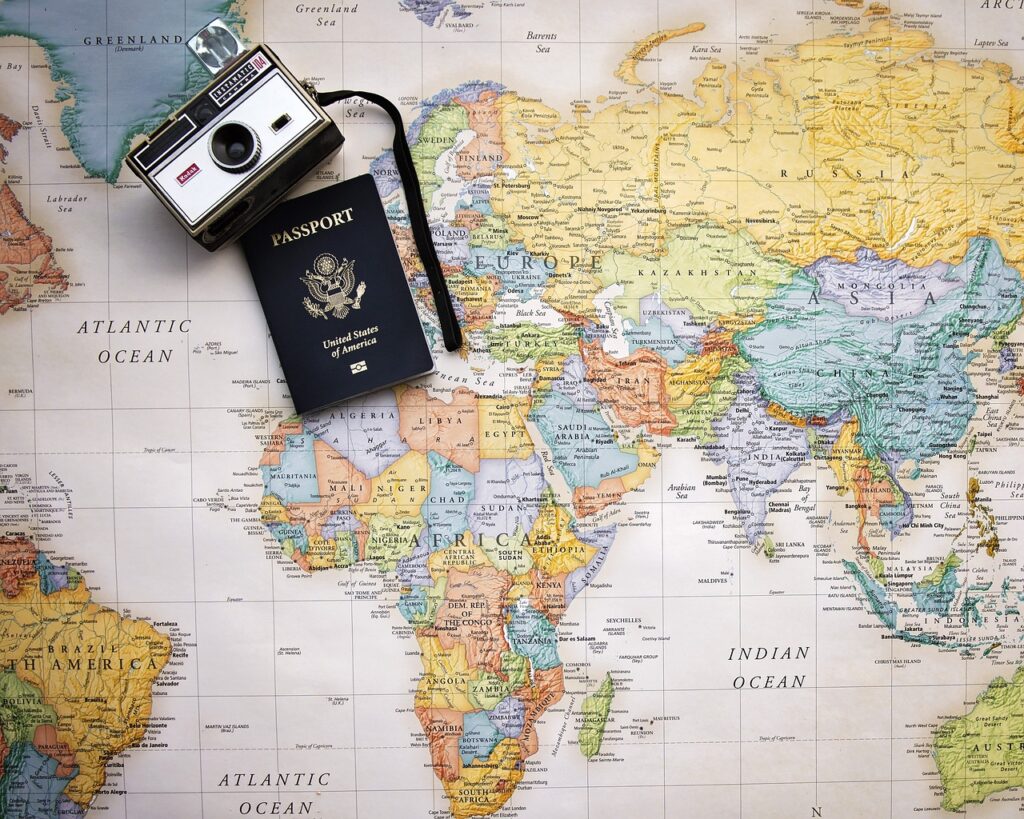
Introduction
Travel insurance is an important yet often overlooked part of trip planning. It acts as a financial safety net, offering protection and peace of mind while you are away from home. Whether you are heading out for a quick weekend trip or a long international adventure, having the right travel insurance can make all the difference.
Table of Contents
Benefits of Travel Insurance
If unexpected events like illness, injury or severe weather force you to cancel or shorten your trip, cancellation and interruption coverage can pay your non-refundable expenses. For international travelers, medical emergency coverage steps in to handle healthcare costs that your regular insurance might not cover.
Lost, stolen or delayed luggage? No problem- travel insurance helps you replace essential items, In extreme situations like medical emergencies or natural disasters, emergency evacuation coverage takes care pf the high costs pf getting you to safety. Many policies offer 24/7 assistance services to guide you through unexpected challenges, whether you need urgent help or just some travel advice.
Types of Travel Insurance
Single-Trip Insurance
Single-trip insurance is travel policy tailored for a specific journey, making it a perfect choice for people who travel occasionally. This type of insurance typically includes protection for unexpected events such as trip cancellations, interruptions, medical emergencies and travel delays. The price depends on factors like the length pf you trip, your age and destination.
Multi-Trip Insurance
Multi-trip insurance is a convenient option for those who travel multiple times a year. Instead of purchasing separate coverage for every trip, this policy protects you for all your travels, within a year. It typically offers the same benefits as single-trip insurance. While the up front cost may be higher than single-trip insurance, it often saves money in the long run for frequent travelers.
Annual Travel Insurance
Annual travel insurance is a convenient option for frequent travelers, offering year-round coverage no matter how many trips you make. It includes protection against trip cancellations, interruptions, medical emergencies and travel delays. There are additional benefits like coverage for lost or delayed baggage and access tp travel assistance services. The may be higher compared to single-trip or multi-trip policies.
Specialty Travel Insurance
Specialty travel insurance is tailored for unique travel experiences like adventure trips, cruises or business journeys. This type of coverage is designed to protect against specific risks related to the nature of your trip such as injuries from adventure sports or damage to business equipment. The cost depends on factors like the type pf trip and the coverage options you choose.
Key Things to Know About Travel Insurance
Coverage Limits
- These are the maximum amounts your insurer will pay for specific claims. such as trip cancellations, medical emergencies or lost baggage.
- Be sure to review these limits carefully to ensure they meet your needs, especially for costly trips or international travel.
Exclusions
- Exclusions refer to situations or events that the policy would not cover, like pre-existing health issues or travel to dangerous locations.
- Reading the fine price can help you avoid unexpected out-of-pocket expenses.
Deductibles
- A deductible is the portion of expenses you must pay out of pocket before your insurance coverage begins.
- Check the deductible amount and think about how it fits into your overall travel budget.
Pre-Existing Medical Conditions
- If you have a medical condition that exixted before purchasing the policy. it is important to know if and how it is covered.
- Look for policies that offer waivers or coverage options for pre-existing conditions if needed.
Where to Buy Travel Insurance
Online Providers
- What They Are: These are insurance companies that sell travel insurance policies directly on their websites.
- Examples: Popular providers include Allianz, AXA and TravelGuard.
- Why Choose Them: They offer competitive prices, easy-to-compare plans and fast, hassle-free online purchases.
Travel Agents
- What They Do: Professional travel planners who help organize trips including offering insurance options.
- Advantages: Travel agents provide personalized insurance plans tailored to your specific needs.
- Considerations: They might charge a service fee and their available options may be more limited compared to other sources.
Insurance Companies
- What They Are: large companies that offer multiple types of insurance including travel coverage.
- Examples: State Farm, Geico and Progressive are well-known names in this space.
- Benefits: You might save money by bundling travel insurance with other policies such as car or home insurance.
Travel Suppliers
- Who Are They: Companies like airlines, hotels or tour operators that provide travel-related services and often offer insurance as an add-on.
- Convenience: Adding travel insurance at the tome of booking makes it easier and quick to protect your trip.
- Things to Keep in Mind: Coverage though travel suppliers is often limited, so it is worth comparing with other options.

How to Compare Travel Insurance Policies
Start by assessing your needs. Think about your destination, trip duration and planned activities. This helps you understand the type of coverage you require and what fits your budget. Next, research different insurance providers, look for online reviews, ask for recommendations and compare various options to identify reputable companies.
Use comparison tools, check customer feedback and review policy details like coverage limits, exclusions and costs. Finally purchase the policy that best meets your requirements. You can buy it online, through a travel agent or directly from the provider.
Step-by-Step Guide to Buying Travel Insurance
Step 1: Understand Your Needs
Start by figuring out what coverage you require. Think about your destination, how long you will be travelling and the activities you will be doing. This helps you to determine the type of protection you need and ensures you stay within your budget.
Step 2: Explore Insurance Providers
Take some time to research different travel insurance companies. Read online reviews, ask your friends for recommendations and compare the policies they offer. It helps you to find reliable providers with good customer feedback.
Step 3: Compare Your Options
After shortlisting a few providers, dive deeper into their policies. Use comparison websites, review policy details and check what’s included (or excluded). This will help you identify which policy offers the best value for your needs.
Step 4: Make Your Purchase
Whether you choose to purchase online, through travel agency or directly from the provider, completing this step gives you the peace of mind that you are covered for the unexpected.
Also Read: How to Get Health Insurance
Conclusion
Getting a travel insurance is an essential part of trip planning. By exploring the different types of coverage, considering key factors and choosing a trusted provider, you can find the perfect policy to protect your journey.
FAQ’s
Q: What happens if I need to make a claim?
Start by contacting your provider as soon as possible. Gather all the necessary documents like receipts, medical records or police reports to support you claim. Complete the claim form provided by your insurer and attach the required paperwork. Once submitted, the company will review your claim and might ask for more details if needed. After approval, you will receive your payment.
Q: Can I buy travel insurance after departure?
The options might be limited compared to buying it beforehand. Some companies specialize in providing travel insurance who are already abroad. It is important to research these providers and understand their terms and policies. Purchasing travel insurance after departure can be more expensive and may not cover pre-existing conditions or incidents that have already occurred.
Q: Are there any age restrictions for travel insurance?
Travel insurance for seniors often comes with unique considerations. While many policies have age limits, usually around 65 to 70, some insurers specifically to older travelers, offering coverage without restrictions. Many senior-focused plans provide added benefits like higher medical coverage and emergency evacuation.
